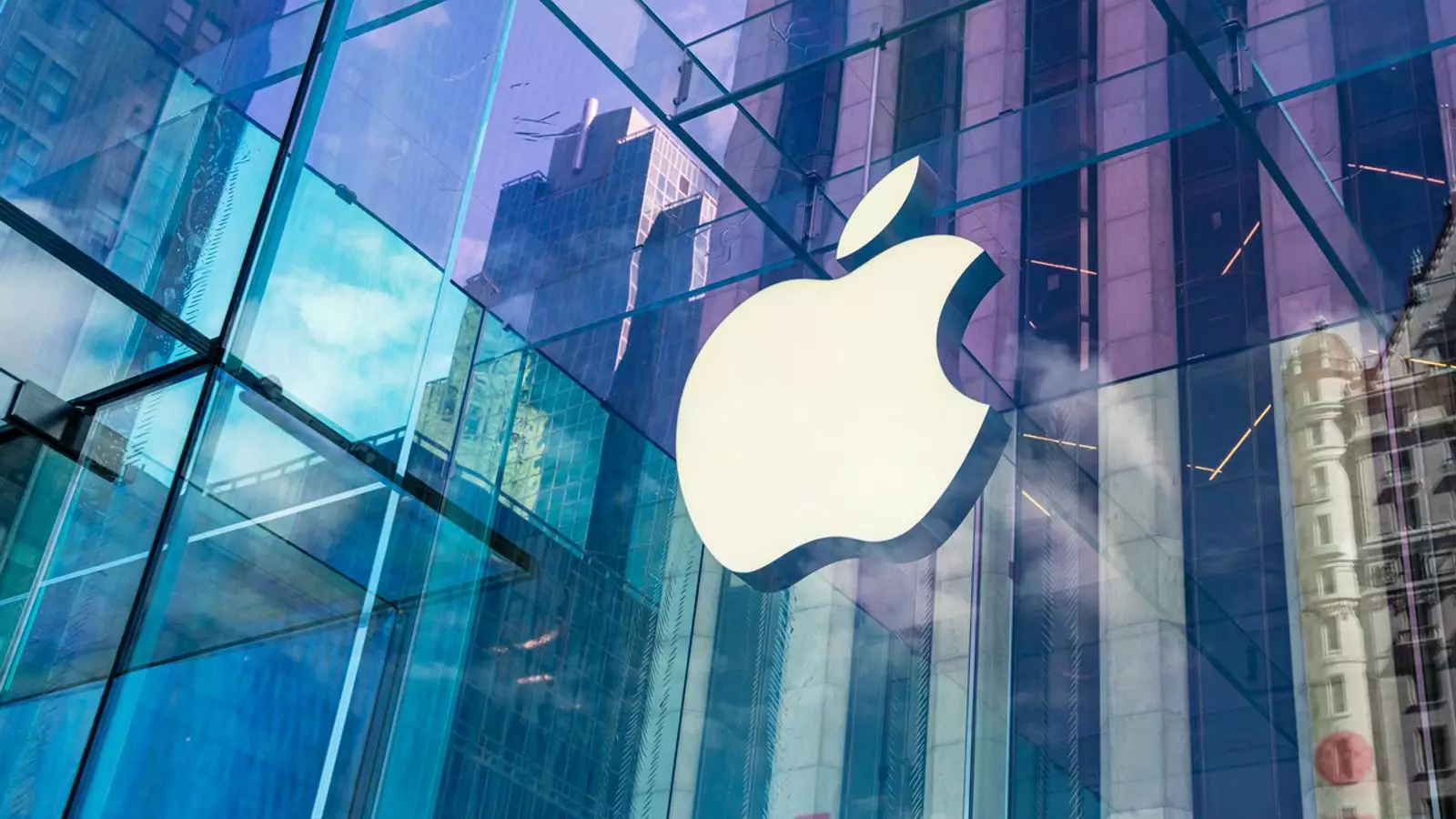In an era where data privacy is increasingly under threat, the conversation surrounding encryption becomes centralized. Apple’s robust encryption policies have made headlines as the UK government has reportedly mandated the company to grant access to encrypted user data stored in its cloud services. At the heart of this issue lies Apple’s commitment to user privacy, which has been a defining characteristic of its business model. As the company builds devices like the iPhone and iMac, it emphasizes that only account holders can access their data—a stance that complicates the relationship between tech giants and governmental demands.
This mandate, issued through a Technical Capability Notice (TCN), poses a question with far-reaching implications. While the Home Office has kept details under wraps, reports suggest that the UK government seeks a blanket ability to view encrypted data from Apple users, both domestically and internationally. This raises not only legal and ethical concerns but also fundamental questions about the rights of users versus the authority of governments.
Government Justifications and Public Safety
The UK government defends its stance by citing public safety, drawing on rationales such as protecting children and identifying criminal activities. Ministers argue that as technology advances, so too must the methods available to law enforcement for safeguarding society. However, this argument is not without controversy. Critics point out that the attempts to undermine encryption fundamentally breach individual privacy rights. They warn that such decrees could open the floodgates for abuses, particularly against vulnerable groups like whistleblowers and journalists who rely on anonymity and secure communication.
The use of encryption seems paramount in protecting sensitive information from malicious actors. As history shows, once tools for surveillance are provided to governments, there is always a risk that they could be exploited in ways that infringe upon civil liberties. The discussions surrounding this issue echo debates from 2017 when former Home Secretary Amber Rudd controversially claimed that she did not have to understand encryption to demand its dismantling. This lack of understanding is reflective of a broader danger; one that sees the objectives of safety overshadowing the principles of individual rights.
Apple’s Advanced Data Protection (ADP) features a promising architecture that enhances user privacy by ensuring that only the user can decrypt their data. With end-to-end encryption, even Apple cannot access the stored information, promoting a notion of individual sovereignty over personal data. However, if the UK’s TCN is enacted and the government is able to bypass these protections, the promise of Advanced Data Protection could be severely undermined.
The implications of this potential breach of security are far-reaching and troubling. If governments like the UK can compel tech companies to compromise encryption standards, this could set a dangerous precedent. It may pave the way for authoritarian regimes to demand similar access, putting pressure on Western firms to sacrifice user privacy in favor of compliance with foreign laws. This global interconnectedness underscores the need for a consistent approach to data privacy—one that prioritizes human rights and personal freedoms over governmental surveillance.
The legality of such a mandate, under the UK Investigatory Powers Act of 2016, raises questions about international governance and regulation of technology. Apple’s criticism of the Act highlights concerns that the UK could position itself as the “world’s regulator” of technology security, which might conflict with the standards upheld by the European Union and the United States. Such a conflict could have repercussions that extend beyond just immediate privacy implications; they could reshape the entire landscape of data privacy and security on a global stage.
Moreover, Apple warned that ordering decryption breaches fundamental human rights. It argues that citizens cannot be subjected to governance that disregards their rights and assurances given by technology companies regarding security. This claim pivots on the understanding that security technologies like end-to-end encryption are not merely tools for tech companies but essential facets of individual freedoms.
A Call for Balance in Policy Making
The debate surrounding Apple, the UK government, and encryption is indicative of a larger struggle between privacy rights and national security. It is essential for dialogues to remain focused not only on the potential risk of crime but also on the fundamental rights and freedoms that such surveillance and demands infringe upon. Policymakers must navigate this landscape with caution and a balanced perspective that accounts for both public safety and individual rights.
The future of data privacy hangs in the balance as entities like Apple and governments negotiate the complexities of a digital era. Striking a concord between safety and privacy is a challenge that will require thoughtful legislation, a public informed of their rights, and adaptive technologies that can continue to protect users in a hostile landscape. Thus, the conversation around encryption isn’t just about technology—it’s fundamentally about who we are as a society and how we choose to protect the rights of individuals within that society.


Leave a Reply